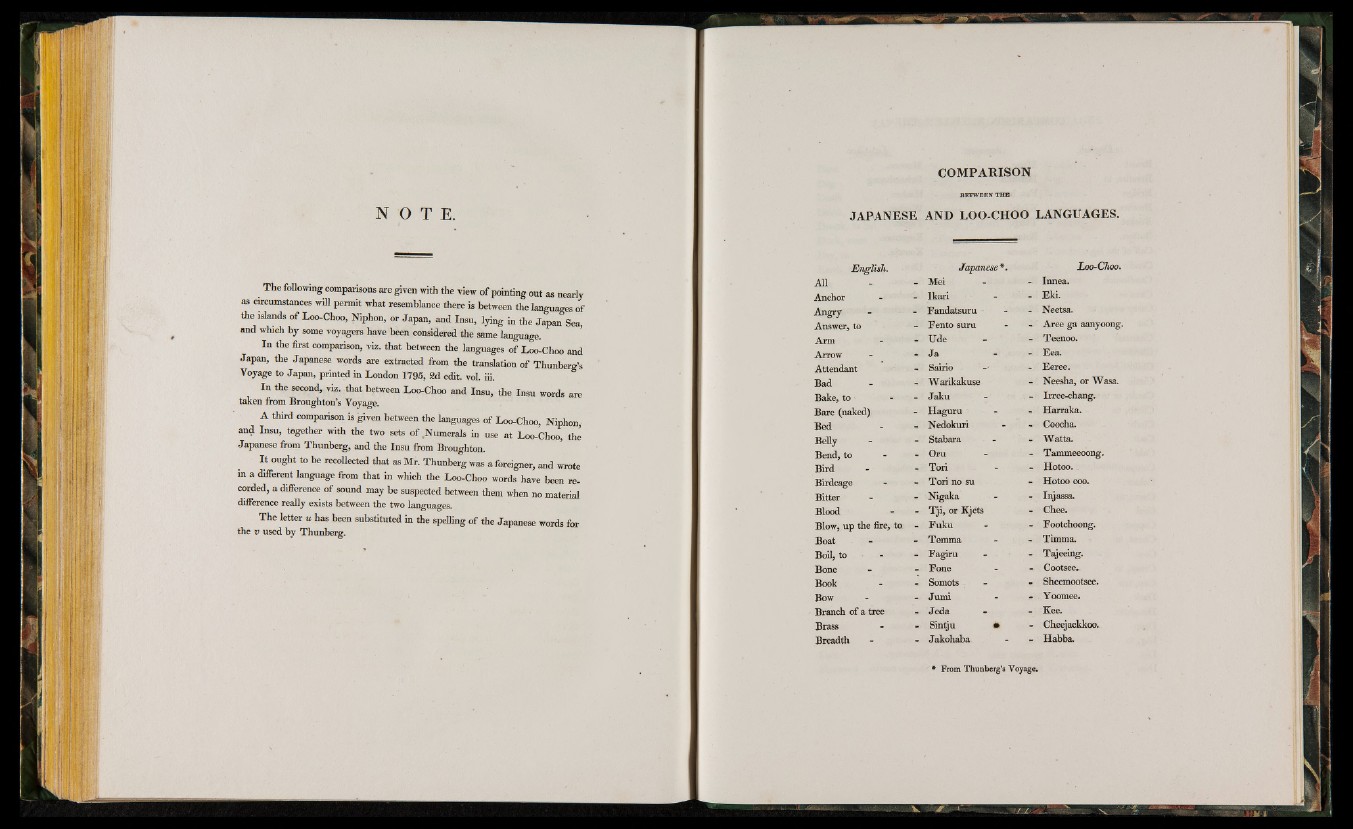
The Mowing comparisons are given with the view of pointing out as nearly
as circumstances will permit what resemblance there is between the languages of
the islands of Loo-Choo, Niphon, or Japan, and Insu, lying in the Japan Sea,
and which by some voyagers have been considered the same language.
In the first comparison, viz. that between the languages of Loo-Choo and
Japan, the Japanese words are extracted from the translation of Thunberg’s
Voyage to Japan, printed in London 1795, 2d edit. vol. iii.
In the second, viz. that between Loo-Choo and Insu, the Insu words are
taken from Broughton’s Voyage.
A third comparison is given between the languages of Loo-Choo, Niphon,
and Insu, together with the two sets of .Numerals in use at Loo-Choo, thè
Japanese from Thunberg, and the Insu from Broughton.
I t ought to be recollected that as Mr. Thunberg was a foreigner, and wrote
in a different language from that in which the Loo-Choo words have been recorded,
a difference of sound may be suspected between them when no material
difference really exists between the two languages.
The letter u has been substituted in the spelling of the Japanese words for
the V used by Thunberg.
COMPARISON
BETWEEN THE
JAPANESE AND LOO-CHOO LANGUAGES.
English. Japanese *. Loo-Choo.
All - Mei - Innea.
Anchor 1 lkari - Eki.
Angry - Eandatsuru Neetsa.
Answer, to Fento sura Aree ga aanyoong.
Arm - Ude - Teenoo.
Arrow H J a Eea.
Attendant j 1 Sairio - - Eeree.
Bad - ■Warikakuse - Neesha, or Wasa.
Bake, to ' Jaku Irree-chang.
Bare (naked) - Haguru Harraka.
Bed •a Nedokuri Coocha.
Belly - Stab ara 1t ó s Wat ta.
Bend, to - Ora |§ |É Tammeeoong.
Bird Tori - Hotoo.
Birdcage - Tori no su Hotoo coo.
Bitter l | | Nigaka - Injassa.
Blood M l Tji, or Kjets r- Chee.
Blow, up the fire, to « Fuku Footchoong.
Boat . Temma I Timma.
Boil, to F agira Tajeeing.
Bone » Fone Cootsee.
Book è Somots Sheemootsee.
Bow - Jumi Yoomee.
Branch of a tree - Jeda Kee.
Brass 1 Sintju é> - Cheejackkoo.
Breadth ¡¡1 Jakohaba Habba.